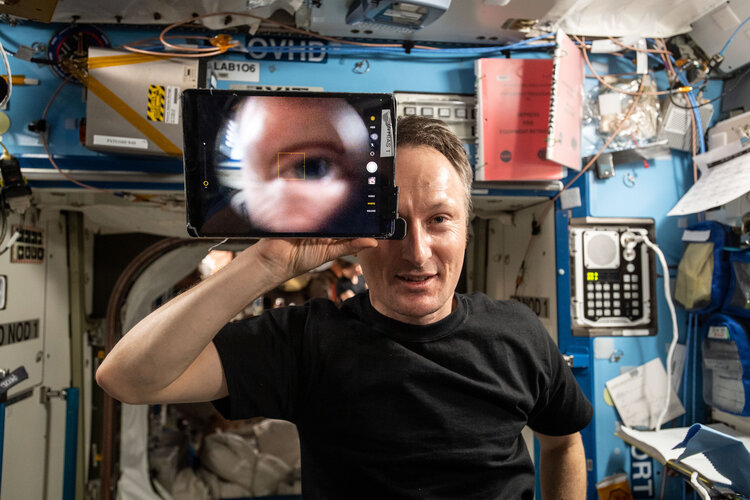Space News & Blog Articles
Eye on world health
 Image:
Image:
H a p p y W o r l d H e a l t h D a y
Celebrated each year on 7 April, World Health Day shines a light on a health topic of concern. This year all eyes, including ESA astronaut Matthias Maurer’s, are on the health of our planet Earth.
From on board the International Space Station 400 km above Earth, Matthias has a unique overview of our planet. Beautiful yet fragile, resilient yet under threat, our third rock from the Sun nevertheless needs looking after.
Matthias work in space during Cosmic Kiss reinforces this. Besides taking numerous photos of Earth from space that compliment data taken by Earth observation satellites, he is also running many experiments exploring human health in space that benefits those on Earth.
One such experiment is the joint ESA and German Aerospace Center’s Retinal Diagnostics project that monitors astronaut eyes while in space.
Developed by young researchers from ESA’s Spaceship EAC initiative, the project uses images of astronauts’ optical discs in space to train an artificially intelligent (AI) model. This model will be used to automatically detect changes in the optic nerve of astronauts, known as Space-Associated Neuro-ocular Syndrome (SANS).
Matthias uses an ophthalmic lens attached to a tablet camera to take images of his retina to send to experts on the ground. The app is so compact and easy to use that it can be used for remote examinations of patients in remote locations on Earth, so that everyone can keep an eye on their retinal health.
Follow Matthias on his Cosmic Kiss mission for more science and space on Twitter, Facebook, Instagram, YouTube the Cosmic Kiss mission page and in regular Space Station updates from ESA.
When you subscribe to the SpaceZE News Feed, we will send you an e-mail when there are new updates on the site so you wouldn't miss them.

